How Devi Sahny Bootstrapped to a Million-Dollar Company in 3 Years
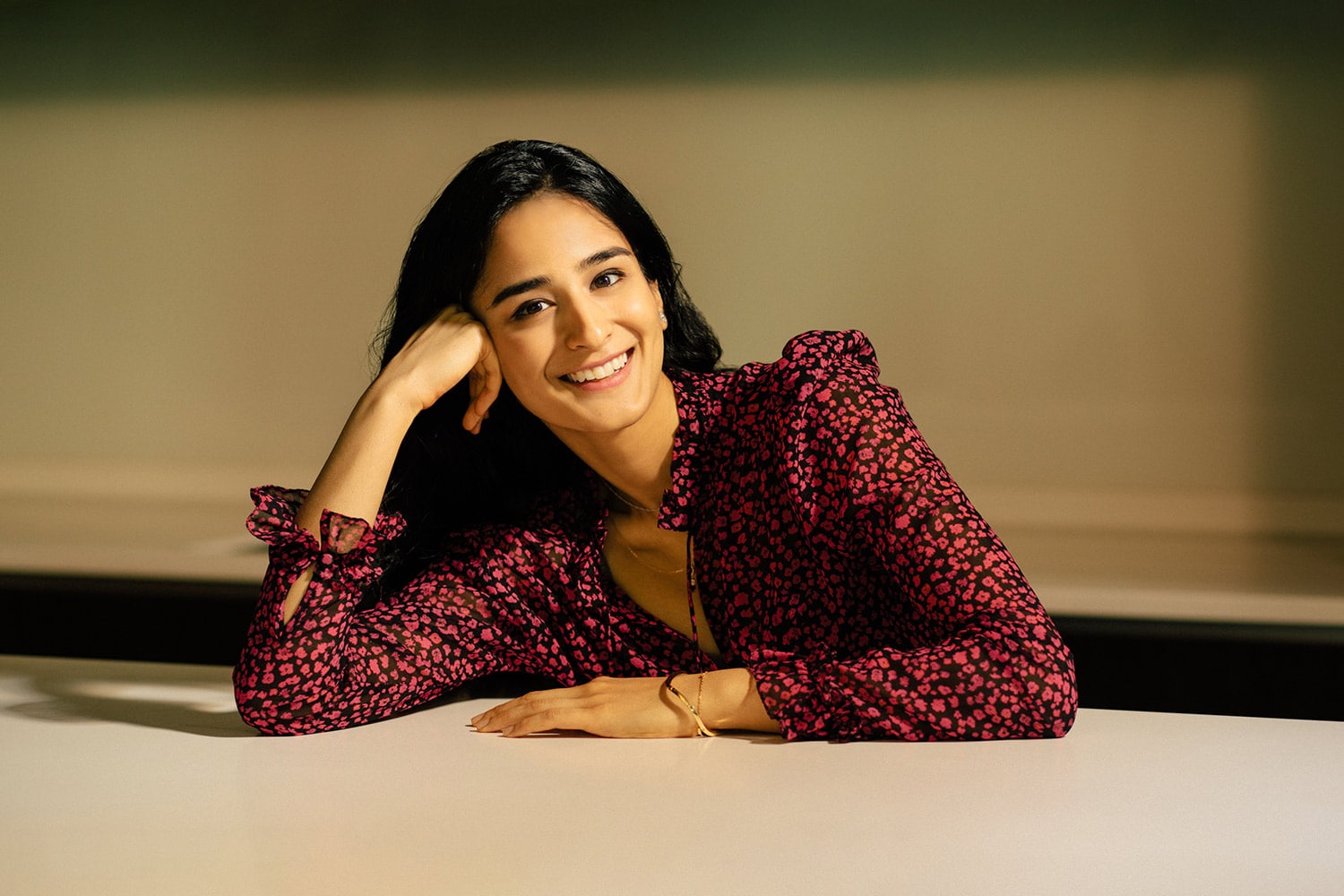
When Belgium-born Devi Sahny came to Singapore at the age of 24 to start an edtech business, her Employment Pass agent dissuaded her repeatedly from becoming an entrepreneur—and insisted she never succeed. Yet not once was Devi’s confidence shaken. Getting Ascend Now off the ground needed a lot of sitzfleisch, and through sheer gumption, the company was profitable within the first year of operation. To double down on the need to deliver high-quality, personalised learning for kids ages seven to 18, Devi widened the curriculum for Academics and Beyond (by offering Entrepreneurship courses), increased her pool of tutors (who are also IB examiners) and penetrated various markets in Southeast Asia. The platform, which currently offers one-to-one, synchronous online learning, has a monthly retention rate of over 85 per cent and is on track to hit US$2.5 million in revenue in 2021. While Ascend Now outperforms most fledgling start-ups, the big, hairy goal is to become a global Y Combinator for kids in the next three years. “I want to improve my ability to hire and delegate,” declares Devi, who manages a team of eight and 75 part-time teachers. “I can be quite hard on myself.” Spend an hour in her company and you’ll learn that this kind of self-betterment is very much the 28-year-old’s default setting. Devi also speaks four languages, is thoughtful, engaging, and doesn’t posture or come across as a faux intellectual. (She has a philosophy degree from Georgetown.) Here, she willingly answers the Proust Questionnaire and shares how she bootstrapped the business with US$8,000.
WY-LENE YAP: What is your current state of mind?
DEVI SAHNY: A juxtaposition between ambitious and peaceful.
WY-LENE: What is your idea of perfect happiness?
DEVI: Happiness spiritually, at work and with family.
WY-LENE: When and where were you happiest?
DEVI: When my grandmother was alive. She passed away in March 2014. She was my best friend and lived with us in Belgium.
WY-LENE: What is your greatest fear?
DEVI: I have two: unintentionally hurting family or close friends and becoming complacent.
WY-LENE: What is your greatest extravagance?
DEVI: Being anxious about everything. I waste a lot of time worrying.
WY-LENE: What is the trait you most deplore in yourself?
DEVI: I’m naive or gullible. Some people see that as the best part of me, but I think you need to know when to switch it on and off. And I just always have it on.
WY-LENE: What is the trait you most deplore in others?
DEVI: Dishonesty and being evasive by not answering questions directly.
WY-LENE: Which living person do you most admire?
DEVI: Emily Weiss, for what she has built despite experiencing a lot of ‘no’s’ early on.
WY-LENE: Which living person do you most despise?
DEVI: [laughs] No one.
WY-LENE: What do you consider the most overrated virtue?
DEVI: Gratitude.
WY-LENE: Why?
DEVI: It can mean so many different things and sometimes it gets overused. I took a class in college on “Ethics and Gratitude” by Anthony Manela, and he described gratitude as something more intrinsic unrelated to external objects, people or things.
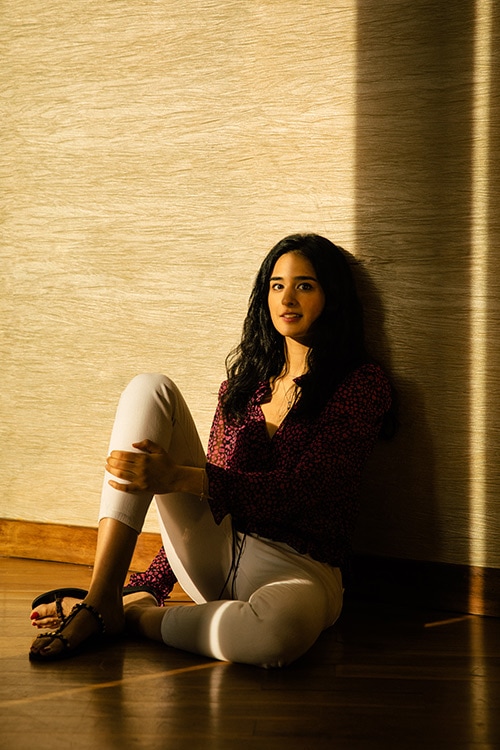
WY-LENE: On what occasion do you lie?
DEVI: I really value honesty. For example, I would tell my clients (parents) that their kids do not need a course right now, even if they think otherwise. Maybe silly things like if I eat someone else’s food when I’m at home and not fess up.
WY-LENE: What do you most dislike about your appearance?
DEVI: My nose. I’m learning to dislike myself less.
WY-LENE: What is the quality you most like in a man?
DEVI: It doesn’t exist to my knowledge? I’m kidding [laughs]. Being family-oriented.
WY-LENE: What is the quality you most like in a woman?
DEVI: Empathy and sincerity.
WY-LENE: Which words or phrases do you most overuse?
DEVI: In other words. Autonomy; I overuse it trying to get kids to think about how much involvement they have in their education or when explaining to parents.
WY-LENE: Which talent would you most like to have?
DEVI: The ability to go into my mind and delete things I don’t want to remember and add things I want to remember.
WY-LENE: If you could change one thing about yourself, what would it be?
DEVI: To not dismiss my emotions.
WY-LENE: What do you consider your greatest achievement?
DEVI: Being the glue to my family. I try to be a good and reliable family member.
WY-LENE: If you were to die and come back as a person or a thing, what would it be?
DEVI: A philosopher or an athlete.
WY-LENE: Where would you most like to live?
DEVI: Switzerland. I’m the kind of person who loves the cold and hates humidity.
WY-LENE: What or who is the greatest love of your life?
DEVI: God. It’s funny, I didn’t use to be so religious—my family isn’t. I was raised a Sikh; my late grandmother taught me all the prayers, but I never understood what they meant until a few years ago when I started to read the translations. Since then, I’ve found so much tranquillity and peace in praying.
WY-LENE: What do you most value in your friends?
DEVI: Humour and the ability to be myself and have them be themselves.
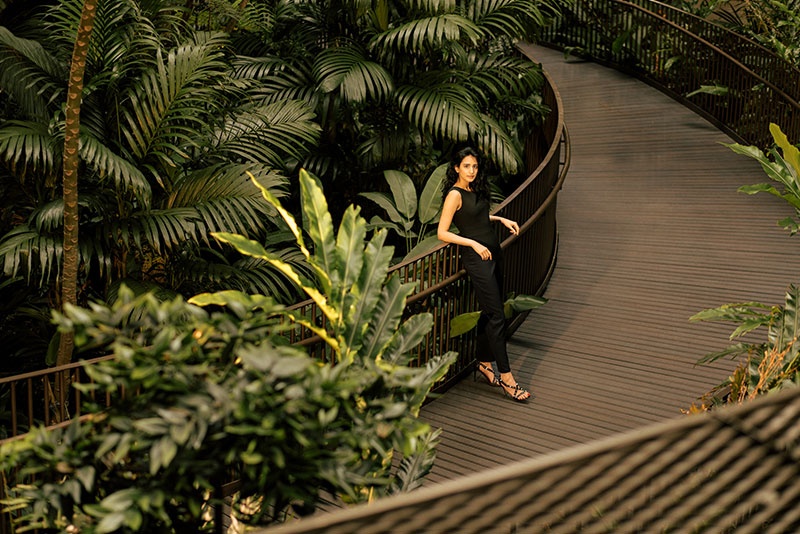
WY-LENE: What is your most treasured possession?
DEVI: It’s a bracelet from my father. There is a message engraved on it (a line from our scripture) that says “iron-fisted gates protected forever.”
WY-LENE: What do you regard as the lowest depth of misery?
DEVI: Feeling stuck and not knowing your purpose.
WY-LENE: What is your favourite occupation?
DEVI: Entrepreneur or teacher. And my job allows me to be both.
WY-LENE: What is your most marked characteristic?
DEVI: My bluntness.
WY-LENE: Who are your favourite writers?
DEVI: Seneca. Albert Camus. Mohsin Hamid.
WY-LENE: Who is your favourite hero of fiction?
DEVI: Siddhartha.
WY-LENE: Which historical figure do you most identify with?
DEVI: Saint Augustine.
WY-LENE: Who are your heroes in real life?
DEVI: My mum, my brother, my team, my students, God.
WY-LENE: What are your favourite names?
DEVI: Lena, Zora, Saira, Kabir, Gladys.
WY-LENE: What is it that you most dislike?
DEVI: Setting goals and not achieving them.
WY-LENE: What is your greatest regret?
DEVI: Prioritising my self-development and growth at the expense of less family time.
WY-LENE: How would you like to die?
DEVI: In bed after a delicious, spicy fried chicken meal.
WY-LENE: What is your motto?
DEVI: Always strive for self-improvement.
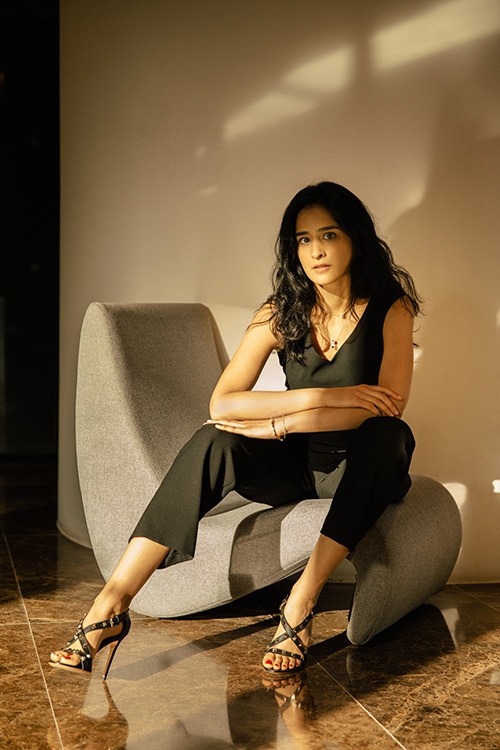
WY-LENE: Let’s talk more about your business. Why did you decide to start a company in Singapore?
DEVI: While I was in university, I was a TA (teaching assistant) for three years. During my senior year, I started a very small business for college students to tutor their peers. It saw quite a bit of success; we had seven tutors who tutored over 60 students. But upon graduation, I decided to enter the world of finance. And after working for Goldman Sachs for three years, I realised that it wasn’t for me, so I moved to Singapore (on a whim) to do something in education. I chose Singapore because it has one of the best education systems in the world. I thought that if I were to start an education business and succeed here, then perhaps I would have a shot globally.
WY-LENE: I remember you telling me that your EP application process was such a nightmare.
DEVI: I did it online first and got rejected. I wasn’t successful the second time, so I decided to hire someone. When I met the lady, she looked at me and said, “You’re 23, are you sure you want to start a business?” Then, she proceeded to give me a big lecture as to why I will never succeed as an entrepreneur. Even after I hired her, she still kept lecturing me again and again. Finally, after two attempts and appeals, my EP was approved.
WY-LENE: How long did the whole process take?
DEVI: Eight months. During that period, since I couldn’t operate my business, I would fly to Jakarta every weekend to penetrate the market. I had one friend there and her mum knew a lot of parents. So I put out ads for education classes and walked into international schools asking if I could do a free talk for parents.
WY-LENE: Do you think your side hustle in college gave you the confidence that Ascend Now could actually work?
DEVI: From that experience, I discovered that students wanted to learn on their own terms. And I took that knowledge and applied it to younger kids. When do kids ever get asked this question: “What do you want to learn for a year?” I don’t think they do and I saw that as an avenue to help them.
WY-LENE: Was it challenging to grow without VC money?
DEVI: We have grown really fast mainly thanks to word of mouth. The families who have been with us in the early days are still with us and they have spread the word to their friends, cousins, etc. In terms of funding, I did not want to raise money until I knew exactly how we would use it. Thankfully, we became slightly profitable in the first year. When you don’t have funding, you learn how to think of creative ways to market your business. For instance, I reached out to my former boss at Goldman Sachs to do something for their employees’ kids.
WY-LENE: Did you do all the tutoring during the early stages of the business?
DEVI: Yeah, it was all me. For the first year, I was both tutoring and running the company.
WY-LENE: How did you manage to grow the number of teachers and get them to be part of your pool?
DEVI: In the early days, I hired a couple of teachers (one of them named Ethan Barnes now heads our curriculum) and organised free events for them, which helped us to build a teacher network. (Teachers operate like fraternities; they all know each other.) Next, we have a four- to six-month onboarding process, because we have a certain pedagogy that they have to follow.
WY-LENE: What sets Ascend Now apart from other education companies?
DEVI: Other competitors say age is just a number, but we truly embody it. We have 11-year-olds starting businesses and selling to companies. One of them built a gaming tool for senior citizens and just sold it to a gaming company in Singapore. Secondly, for our academic courses, our teachers are also examiners, so they teach the kids exactly what they need to know to score well.
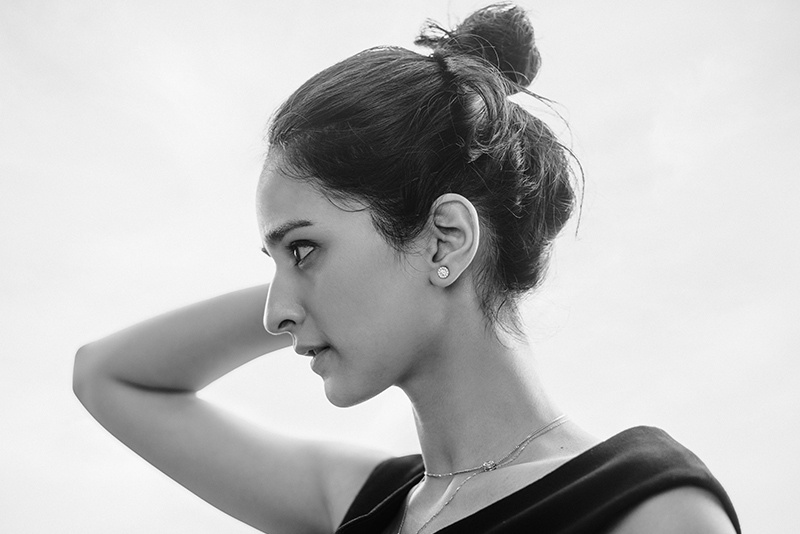
WY-LENE: What will your revenues look like this year?
DEVI: US$2.5 million. In 2022, we’re expecting to hit US$5 to US$5.5 million as there are plans to add asynchronous learning (prerecorded content) to our platform.
WY-LENE: Do you have a philosophy towards learning, school, and education?
DEVI: In order to learn about the world, you must first learn about yourself. Self-awareness is very important.
WY-LENE: I looked at your current curriculum and it is segmented into Academics, Beyond Academics and Entrepreneurship. The courses seem to cater to left brain development.
DEVI: Yeah, but one of our top-selling courses is on blog writing where kids develop their own manuscript, or they write an article and it gets published on a website. I would say from the ages of seven to 14, most of what we do is creative. From 14 to 18, it’s academic. One of our main focuses is on entrepreneurship and we want to impart an entrepreneurial mindset, which is much harder than teaching a set of skills. We have a course called Bullpen; it’s basically Shark Tank for kids and they pitch their businesses to investors and professors. Some of them have even invested in those who did not win because they see potential in them. Portia, a student of ours, created an app when she was 15 for high schoolers to swipe for internships! And Gojek is one of the employers.
WY-LENE: Finally, what is something you taught yourself recently?
DEVI: To have a night-time routine and decrease screen time.

